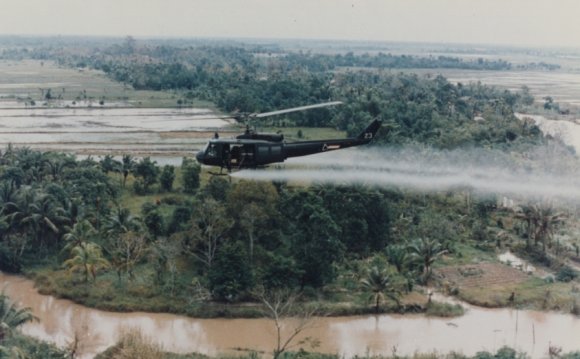
 Last month, the Institute of medication (IOM) introduced a study that looked over feasible connections between Agent Orange and blue-water Navy Veterans who served in Vietnam. The report figured there wasn’t sufficient information accessible to justify tying a presumption of Agent Orange experience of blue-water solution. But, like a lot of health reports, if you’re maybe not an expert, the results could be somewhat difficult to interpret—to figure out what it really method for Veterans.
Last month, the Institute of medication (IOM) introduced a study that looked over feasible connections between Agent Orange and blue-water Navy Veterans who served in Vietnam. The report figured there wasn’t sufficient information accessible to justify tying a presumption of Agent Orange experience of blue-water solution. But, like a lot of health reports, if you’re maybe not an expert, the results could be somewhat difficult to interpret—to figure out what it really method for Veterans.
Blue-water Navy Vietnam Veterans are the ones just who served aboard deep-water U.S. Navy vessels, but couldn't dock or set base on land in Vietnam. Conversely, Brown Water Navy Vietnam Veterans served on vessels that patrolled the inland shoals and waterways regarding the Republic of Vietnam.
Regarding Agent Orange, Brown Water Veterans just who served in Vietnam during the war (and with a condition which can be assumed to-be linked to the herbicide) don’t have to prove a connection between their medical problems and their particular armed forces service. There are 14 diseases that come under this presumption, and they’re known as presumptives.
Here’s a small amount of a schedule:
- Secretary Shinseki requested the IOM to guage whether Blue Water Navy Vietnam Veterans practiced exposures to herbicides and their contaminants comparable with those of the Brown liquid Navy Vietnam Veterans and those on the floor in Vietnam. If that's the case, the IOM ended up being expected to compare the channels of feasible visibility and examine whether such exposures would induce an elevated danger of long-lasting undesirable wellness results.
- The IOM revealed the report, finishing that, qualitatively, surface soldiers and Brown Water Navy Veterans had much more “plausible pathways of publicity” to Agent Orange than did Blue Water Navy Veterans. But, due to the not enough information on environmental levels of Agent Orange pollutants, the IOM cannot compare actual exposures among these teams and figured it visibility of Blue Water Navy Veterans to Agent Orange cannot fairly be determined. VA’s material specialists will always be undergoing reviewing the conclusions.
The results with this report never imply that blue-water Navy Veterans cannot publish claims and apply for benefits when they believe these people were exposed to Agent Orange.
The current statements procedure for blue-water Navy Vietnam Veterans follows exactly the same path as most Veterans submitting claims to VA: they have been taken on an instance by case foundation, but there is however no presumed organization between infection and service – there has to be evidence to guide the claim.
There is certainly one condition that’s an exclusion to these conclusions: non-Hodgkins lymphoma. Blue-water Veterans saying non-Hodgkin’s lymphoma as a disability could be granted service-connection without showing inland waterway service or that they put foot in Vietnam. Simply because VA also recognizes non-Hodgkin’s lymphoma as related to service in Vietnam or perhaps the oceans offshore of Vietnam throughout the Vietnam age.
VA has recognized statements from Vietnam Veterans whoever boats joined inland waterways, and/or docked at certain times and areas, should they declare that they went ashore. So far, this pertains to 140 ships and 51 courses of vessels. Veterans have been aboard these ships meet the criteria for benefits based on the presumption that their diseases tend to be connected with their particular solution in Vietnam.
YOU MIGHT ALSO LIKE












